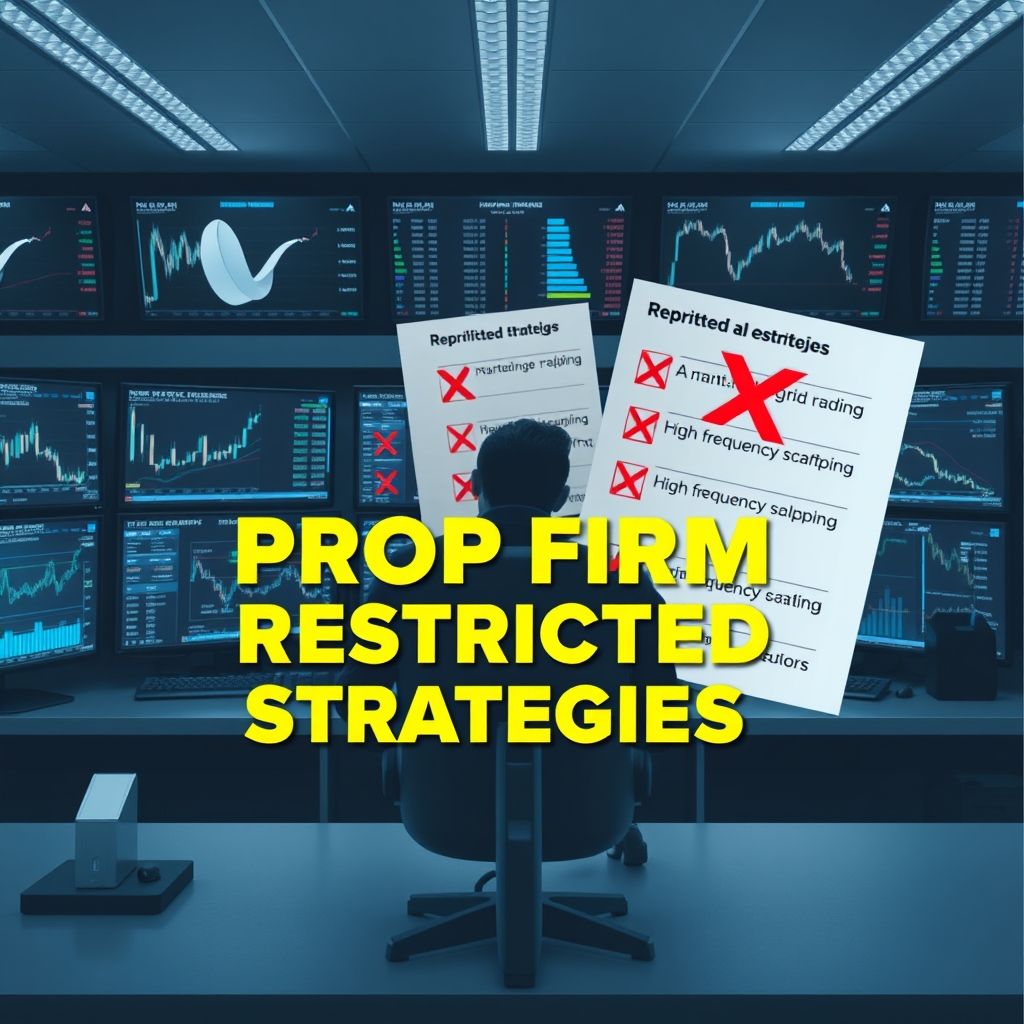Prop Firm Restricted Strategies: Strategies Not Allowed by Most Prop Firms
Understanding prop firm restricted strategies is critical for any trader managing a funded account. While some techniques may work in personal accounts, prop firms often have strict policies against certain approaches. To maintain your funded status and avoid violations, it’s essential to know what’s off-limits—especially when trading with reputable firms like Larsa Capital.
Why Prop Firms Restrict Certain Strategies
Prop firms provide capital and expect disciplined, risk-managed performance. Strategies that introduce excessive risk, exploit system loopholes, or depend on inconsistent market behavior are often prohibited. Firms set these rules to protect both their capital and the trader from sudden drawdowns or unfair advantages.
While each firm’s rulebook may differ slightly, the majority share common restrictions that all serious traders should know.
Common Prop Firm Restricted Strategies
Some trading methods might seem effective on the surface, but they go against the operating principles of most prop firms. Let’s explore them:
High-Frequency Scalping (Latency Arbitrage)
One of the most common prop firm restricted strategies is latency arbitrage, which involves exploiting price delays between brokers or data feeds. This method relies on technological advantages, not skill or strategy. Many firms strictly ban this due to its unfair nature and the risk of broker conflicts.
News Trading with Extreme Volatility
While trading news can be profitable, executing large positions during high-impact events (like NFP or CPI releases) often violates prop firm guidelines. Price slippage and execution delays can lead to unnatural profits—or significant losses. This is why some firms prohibit aggressive news trading within specific time windows.
Martingale and Grid Systems
Martingale strategies involve doubling down on losses, while grid systems place buy and sell orders at regular intervals regardless of market direction. These methods can quickly result in large drawdowns. Since prop firms enforce maximum daily and overall loss limits, these strategies typically breach rules and are therefore banned.
Tick Scalping and Rapid Entries
Some traders open and close trades within seconds to capture minimal price movements. These micro-scalping methods often flood the platform with orders and may trigger risk management flags. Larsa Capital, like many reputable firms, promotes responsible, measured trading—not erratic short-term execution.
Copy Trading and Third-Party Signal Automation
Using external signals or trade copiers—especially when duplicating another funded trader’s strategy—can violate originality policies. Prop firms aim to fund skilled traders, not copycat systems. Even with automation, all strategies must be your own and follow the firm’s rules.
Avoiding Violations: Trade Smart with Larsa Capital
At Larsa Capital, we support freedom in strategy design—but within clear boundaries. We provide every trader with detailed guidelines upon starting the challenge. By avoiding prop firm restricted strategies, traders increase their chances of long-term success and continued funding.
If you’re ever unsure whether your strategy is compliant, our support team is here to help. Our goal is not only to fund traders—but to empower them with the resources to grow and trade responsibly.
Final Thoughts: Focus on Sustainable Strategy
Trading with a prop firm requires professionalism and accountability. By steering clear of prop firm restricted strategies, you avoid risking your hard-earned funding and instead build a strong track record. Focus on consistent risk management, sound technical setups, and well-planned execution.
Always trade with a long-term mindset—and when in doubt, remember: if it feels like a shortcut, it probably isn’t sustainable.

